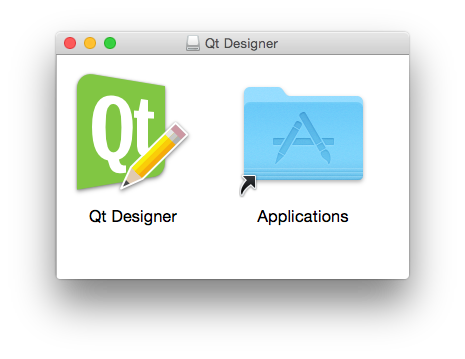

- #QT MAC OS VERSION HOW TO#
- #QT MAC OS VERSION MAC OS X#
- #QT MAC OS VERSION DRIVER#
- #QT MAC OS VERSION UPGRADE#
Instead, Mac OS X uses its own native windowing system that is accessible through the Carbon and Cocoa APIs. The main difference is X11 is not used as the primary windowing system. Also, consider filing a bug report with Apple so that they can improve support for this feature.Mac OS X is a UNIX platform and behaves similar to other Unix-like platforms. If this solves the problem, it probably is a good idea to turn off precompiled headers. If, while using precompiled headers, you encounter an internal compile error, try removing the -include header statement from the compile line and trying again. If you want to use precompiled headers when building the Qt source package, specify the -pch option to configure. They are not enabled by default as it appears that some versions of Apple's GCC and make have problems with this feature. Starting with Qt 3.3.0 it is possible to use precompiled headers. It does not affect plugins or static builds.
#QT MAC OS VERSION DRIVER#
This is only a problem when building the MySQL driver into Qt. usr/bin/libtool: internal link edit command failed usr/local/mysql/lib/libmysqlclient.a(my_error.o) definition of common _errbuff (size 512) If you get the following error message when linking Qt: ld: common symbols not allowed with MH_DYLIB output format with the -multi_module option There seems to be a issue when both -prebind and -multi_module are defined when linking static C libraries into dynamic library. You need to have a fresh Qt distribution (make confclean). To fix this, simply unset your QMAKESPEC or set it to macx-g++ before you run configure. This will cause problems when you build the Qt/Mac package. If you have installed the Qt/X11 package from Fink (), it will set the QMAKESPEC environment variable to darwin-g++. If problems still occur, contact support.
#QT MAC OS VERSION UPGRADE#
Please be sure to upgrade both simultaneously. These must match in order to successfully compile files. 10.3 to 10.4), without upgrading your Developer Tools (Xcode Tools). This could be an indication you have upgraded your version of Mac OS X (e.g. If Qt does not build upon executing make, and fails with an error message such as /usr/bin/ld: /System/Library/Frameworks/amework/Carbon pro file: QMAKE_MAC_SDK=/Developer/SDKs/MacOSX10.4u.sdk You can also generate universal binaries using qmake.

If you are building on Intel hardware you can omit the sdk parameter, but PowerPC hardware requires it. As of Qt 4.1 it is possible to build Qt as a set of universal binaries and frameworks from configure by adding these extra flags: -universal -sdk /Developer/SDKs/MacOSX10.4u.sdk As of Qt 4.1 it is possible to support the Intel architecture by creating Universal Binaries with qmake. Qt 4 fully supports both the Intel and PowerPC architectures on the Mac. If you require a different configuration, you will have to use the source package and build with GCC 3.3.

You should be able to run applications linked against these frameworks on Mac OS X 10.3.9 and Mac OS X 10.4+. It will only link executables built against 10.4 (or a 10.4 SDK). The binary package was built on Mac OS X 10.4 with Xcode Tools 2.1 (gcc 4.0.0) for Qt 4.1.0, Xcode Tools 2.2 (gcc 4.0.1) for Qt 4.1.1-4.1.4 and Xcode Tools 2.3 for 4.2.0.
#QT MAC OS VERSION HOW TO#
Evaluation users of Qt will have information about how to create this file in the email they receive. Installer.app cannot complete without a valid. The binary package requires that you have your. You need the November 2004 GCC 3.3 updater, available from Apple. However, the version of GCC 3.3 that is included with Xcode Tools 1.5 generates incorrect code for Qt 4.1.3. Qt can be compiled with GCC 3.3 and above. Qt 4.1.4 is the last release to work with Mac OS X 10.2. Qt 4.1 has been tested to run on Mac OS X 10.2.8 and up. See notes on the binary package for more information. Qt 4.3 has been tested to run on Mac OS X 10.3.9 and up. This page contains information about the Mac OS X versions Qt is currently known to run on, with links to platform-specific notes.


 0 kommentar(er)
0 kommentar(er)
